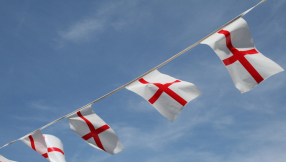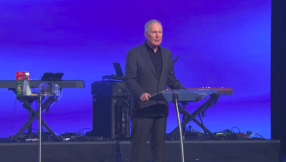Harry Potter author reveals books' Christian allegory, her struggling faith
|PIC1|During a press conference at the kick-off of her "Open Book Tour" on Monday, the British author told reporters that while religious themes were always present she purposely refrained from referencing any particular religion in order to conceal the ending.
"To me, [the religious parallels have] always been obvious," Rowling said. "But I never wanted to talk too openly about it because I thought it might show people who just wanted the story where we were going."
And where did the story end up? (Spoiler warning: Read no further if you don't want to find out what happens.)
Apparently, the last installment of the series is about resurrection and life after death.
In "Deathly Hallows," Harry visits his parents' graves at Godric's Hallow and sees two biblical references on his parents' tombstones, reading: "The last enemy that shall be destroyed is death," and "Where your treasure is, there will your heart be also."
The first refers to 1 Corinthians 15:26 and the second is a direct quote from Jesus in Matthew 6:19.
By the end of the book, Harry becomes the "Master of Death" and "resurrects" from the dead the spirits of his parents, his godfather, Sirius Black and his old teacher Remus Lupin.
"They're very British books, so on a very practical note Harry was going to find biblical quotations on tombstones," Rowling explained. "[But] I think those two particular quotations he finds on the tombstones at Godric's Hollow, they sum up - they almost epitomize the whole series."
The book also begins with two religiously-themed epigraphs - one Christian, the other pagan.
Even though her books contain religious themes, the church-going author revealed that she struggles with believing in a basic Christian tenet of life after death.
"The truth is that, like Graham Greene, my faith is sometimes that my faith will return. It's something I struggle with a lot," Rowling admitted. "On any given moment if you asked me [if] I believe in life after death, I think if you polled me regularly through the week, I think I would come down on the side of yes - that I do believe in life after death. [But] it's something that I wrestle with a lot. It preoccupies me a lot, and I think that's very obvious within the books."
Rowling was raised Christian in the Anglican Church and currently attends the Church of Scotland.
However, many conservative Christian leaders have strong denounced the author's books as anything but detrimental to Christians and children, saying that it promotes witchcraft and the occult.
James Dobson, founder of US-based Focus on the Family, had publicly criticised Harry Potter books.
"[I]t's difficult to ignore the effects such stories (albeit imaginary) might have on young, impressionable minds," said Dobson in a statement noting the trend toward witchcraft and New Age ideology.
Pope Benedict XVI, then Cardinal Joseph Ratzinger, had even condemned the books, writing that their "subtle seductions, which act unnoticed ... deeply distort Christianity in the soul before it can grow properly."
But Rowling has yet to take warnings on her book's potentially adverse influence seriously, retorting, "I go to church myself."
"I don't take any responsibility for the lunatic fringes of my own religion," she added.
Chuck Colson, founder of US-based Prison Fellowship Ministries, advised parents in a past commentary on Harry Potter to teach their kids to be discerning like Daniel, who read pagan literature but "didn't defile himself."
Colson also recommended Christian-themed alternatives such as Irish-born C.S. Lewis's Narnia books, as well as Oxford professor Tolkien's Lord of the Rings trilogy.
"These books also feature wizards and witches and magic, but in addition, they inspire the imagination within a Christian framework-and prepare the hearts of readers for the real-life story of Jesus Christ," said Colson.
"Harry Potter and the Deathly Hallows," the seventh and final of Rowling's novels on Hogwarts School of Witchcraft and Wizardry, has been out since July 21 and has sold more than 350 million copies worldwide.













